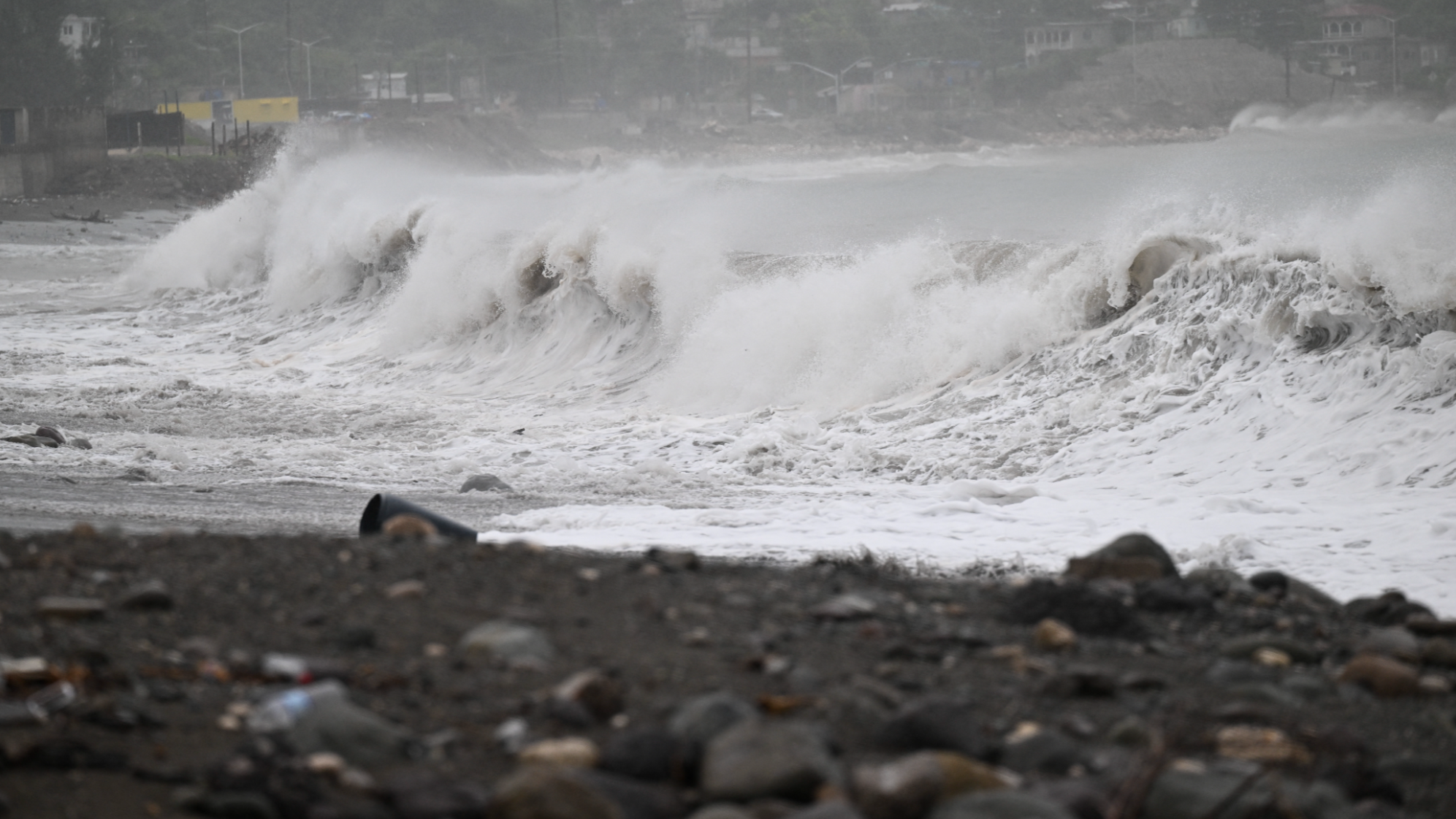
The leaders of small Caribbean island nations on Thursday said that financial damages wrought by Hurricane Beryl would run beyond their capacities and urged lenders to ease financing costs to address the worsening impacts of climate change.
The Atlantic hurricane season runs from June to November, but Beryl, this season's first hurricane, was the earliest on record to surge to a Category 5, as human-caused climate change causes storms to intensify faster and stronger.
The region has long called for wealthy nations to honor their pledges to reduce emissions, fund climate relief efforts and consider debt relief. A recent Reuters investigation found billions in climate funds being funneled back to rich nations
An estimated 20,000 people lost homes across Grenada and St Vincent and the Grenadines during Beryl and are vulnerable to more storms in what has been forecast to be a highly active season due to record ocean temperatures.
READ MORE: Hurricane Beryl strikes Jamaica as death toll creeps up, destruction widespread
The two countries' leaders each estimated hundreds of millions of dollars in damages, and said that racking up more debt to international financiers was neither just nor sustainable.
"We are seeing what can happen in just a few hours - entire small islands decimated," St Vincent and the Grenadines' Prime Minister Ralph Gonsalves told a press conference, adding that major polluting nations were either not listening or lacked the political will to tackle climate change.
The region has long called for wealthy nations to honor their pledges to reduce emissions, fund climate relief efforts and consider debt relief. A recent Reuters investigation found billions in climate funds being funneled back to rich nations.
International lenders, Gonsalves added, "are not fit for purpose for disasters of this kind. There's very little money available for relief."
CCRIF said Beryl was "very reminiscent" of 2004's Hurricane Ivan, which caused the United States some $20 billion in damages and $6 billion in the Caribbean, costing both Grenada and the Cayman Islands losses totaling 200 percent of their annual GDP
The Caribbean Catastrophe Risk Insurance Facility (CCRIF), a regional risk pool, said this week it would pay $44 million to Grenada, its largest-ever single payout, surpassing the $40 million it paid Haiti after its 2021 earthquake.
CCRIF said Beryl was "very reminiscent" of 2004's Hurricane Ivan, which caused the United States some $20 billion in damages and $6 billion in the Caribbean, costing both Grenada and the Cayman Islands losses totaling 200 percent of their annual GDP.
READ MORE: Beryl, earliest Category 4 hurricane on record, brings perilous winds to Caribbean
Grenadian Prime Minister Dickon Mitchell said the two nations "simply cannot afford another hurricane."
He said the payouts were just a "drop" of what was needed, as mainland Grenada would need to feed the worst-hit islands for the next six months at least, and it could take their devastated economies, agriculture and wildlife decades to recover.
"The needs of our citizens are immediate," Mitchell said. "The cost of living on the front lines of the climate crisis is too high for us to bear alone."


